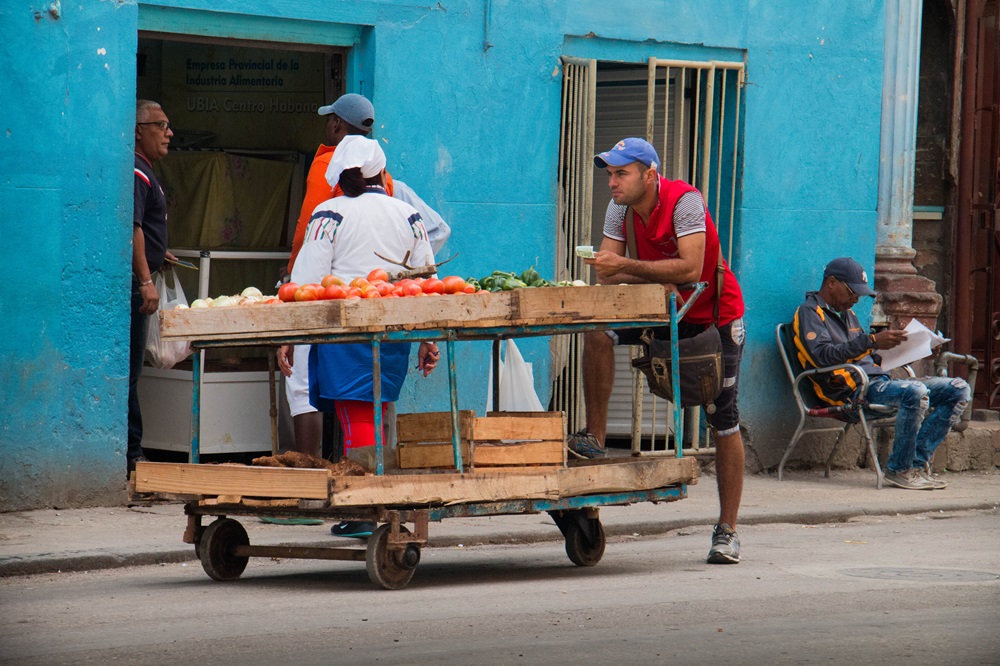
After a period of relatively low inflation in many economies in the Global North, inflation has once again become a major world concern. The COVID-19 pandemic, which disrupted supply chains and labor markets, combined with increased government spending and rising energy prices due to the war in Ukraine, has contributed to a global surge in prices. Unsurprisingly, public debates have centered on how to stall this development. Bankers, policymakers, and economists negotiate which economic levers to pull, and when, to stabilize the prices. Amid discussions about rising interest rates, new monetary policy and government price caps, where does anthropology fit in? What can anthropology add to the academic study of inflation?
This blog series invites colleagues to explore the realities of inflation through ethnographic studies in their areas of expertise. How does global inflation effect people’s everyday lives? How do ordinary people navigate and experience price rises? Inflation, it turns out, is a fitting topic for anthropological research. The ethnographic method, known to focus on the fine-grained textures of everyday life, is suited to analyze not only why and how inflation occurs, but also how people try to sustain their lives and find new ways to attract and store value when the usefulness of their national currency starts melting away—like “a piece of chocolate in hand on a hot day,” as one disgruntled Cuban business owner recently put it.
As this collection reminds us, the causes and effects of inflation are discussed not only in government meeting rooms, Central Bank offices, or behind closed doors at lavish G7 summits but also in roadside cafes in Kashmir, among motorcycle delivery drivers in Beirut, high-school students in Caracas, and by aspiring tech entrepreneurs in Kigali. How inflation manifests in everyday conversations is of particular interest to anthropological research, because the way soaring prices become politicized—in other words, who or what is blamed for inflation—shapes its broader social and political consequences. Whether dissatisfaction with rising prices is expressed through electoral voting, union organizing, migration, or political protests, the everyday experience, framing and understanding of inflation remains crucial to its effects.
While inflation is on one level inherently political and moral, it is often perceived as technical, arguably due to the dominance of economics approaches to the issue. This very technicality can in turn have political effects. Based on fieldwork among aspiring tech entrepreneurs in Rwanda, Alexandrine Royer, for instance, describes how inflation becomes a way for disgruntled citizens to express political frustrations. As the Rwandan government has turned increasingly authoritarian, many are wary of openly directing their discontent at political leaders. “Inflation talk” (Amri 2023), being seemingly apolitical in nature, offers a safer avenue for articulating their concerns and complaints. The anthropology of inflation is well-suited to attune to these processes – investigating what political and moral modes of understanding underlie talk about and action directed at inflation. A striking case in this regard is Argentina, where the new president, a self-proclaimed anti-establishment candidate, rose to power by attributing the responsibility for inflation to his political opponents, as described by Sian Lazar and Dolores Señorans in their blog piece.
Another area for anthropological research concerns how ordinary people both produce and respond to prices. Arguably, since the work of historian E.P. Thompson (1971), economic anthropologists have recognized that even a seemingly technical issue like the pricing of goods is shaped by social and political processes beyond the economic forces of supply and demand. As Thompson famously showed, bread is not just another commodity but part of the “moral economy” of the working class, a share of the common good to which people feel they have a rightful claim. The makeup of the moral economy differs across geography and history. Drawing on field research in Pakistan, Quirin Rieder investigates the fascinating case of tea prices in rural Kashmir, showing how ordinary people may not only react to and protest inflation but also contribute, to some extent, to shaping the phenomenon itself. As it turns out, there are limits to how much people will accept to pay for a cup of tea, or indeed other staple items, like a basket of eggs, a bottle of water, or a pack of tampons.
Ethnographic research can reveal how such consumer preferences are defined by specific social and political histories, which in turn shape people’s reactions to, and attempts to handle, inflation. The point may seem obvious but is worth emphasizing. Not only does inflation unfold in economies that are historically and socially constituted, but as Neiburg (2023: 10) has put it, inflation itself is a “social and cultural fact”. Culturally and historically constituted notions of “the normal life”, and a “life worth living” will always contribute to shaping the experience of rising prices. For many, inflation is a crisis, a rupture from ordinary life. Yet contrary to the assumption that inflation is always an inherently negative phenomenon, Daromir Rudnyckyj’s provocative blog piece suggests that it is not universally perceived as a “problem.”
A third area of interest suggested by the case studies in this collection centers on how people navigate monetary instability and plurality. As Harry Pettit points out in his case study from Beirut, monetary instability will often set off a messy battle for the control over the circulation of cash as well as the digital infrastructures that facilitate economic transactions. In a related vein, Van Roekel draws on field research in Venezuela to ask how Venezuelans navigate and assess their de facto multi-currency economy of foreign bank notes, crypto currencies, and gold after a decade of hyperinflation. In several cases, people find, or even invent, new sources of value, or turn to new techniques of storing and circulating value, when the national currency start to lose worth. A final, fascinating example comes from Cuba, a country that only in recent years has experienced the effects of inflation, as described in two separate blog entries by Alexandrine Boudreault-Fournier and Mélissa Gauthier, and Steffen Köhn. Here, the ongoing economic crisis and triple-digit inflation rates have inspired Cubans to turn to “play-to-earn” crypto games online, to access digital currencies. Runaway inflation and economic crises are breeding grounds for new digital experimentation with money and exchange creating niches for makeshift economic survival, speculation and quick profit, while reproducing historical conditions of vulnerability, inequality and “crypto-colonialism” (Rosales et al. 2024).
Combined, the ethnographic studies in this blog series on the social life of inflation reveal the potential of an anthropology of inflation to inquire economies from below. This effort has only just begun.
This text is part of the feature The Social Life of Inflation edited by Sian Lazar, Evan van Roeckel, and Ståle Wig.
Ståle Wig is a Postdoctoral Fellow at the University of Oslo, and author of the forthcoming book, The struggle for the market. Life and hustle in Cuba’s new economy (Pennsylvania University Press).
Sian Lazar is Professor of Social Anthropology at the University of Cambridge. Her latest book is How we Struggle: A Political Anthropology of Labour (Pluto Press)
Eva van Roekel is assistant professor in cultural anthropology at Vrije Universiteit Amsterdam. She is author of the monograph Phenomenal Justice. Violence and Morality in Argentina (Rutgers University Press).
References
Amri, M. (2023). “Inflation as Talk, Economy as Feel: Notes Towards an Anthropology of Inflation”. Anthropology of the Middle East, 18(2), 27-45.
E.P. Thompson (1971). “The Moral Economy of the English Crowd in the Eighteenth Century.” Past & Present 50 (1): 76–136.
Neiburg, F. (2023). “Inflation: Pragmatics of money and inflationary sensoria. economic sociology. perspectives and conversations”, 24(3), 9-17.
Rosales, A., van Roekel, E., Howson, P., & Kanters, C. (2024). “Poor miners and empty e-wallets: Latin American experiences with cryptocurrencies in crisis”. Human Geography, 17(1), 43-54. https://doi.org/10.1177/19427786231193985
Cite as: Ståle Wig, Sian Lazar and Eva van Roekel: The social life of inflation: introduction” Focaalblog 10 December. https://www.focaalblog.com/2024/12/10/stale-wig-sian-lazar-and-eva-van-roekel-the-social-life-of-inflation-introduction/
